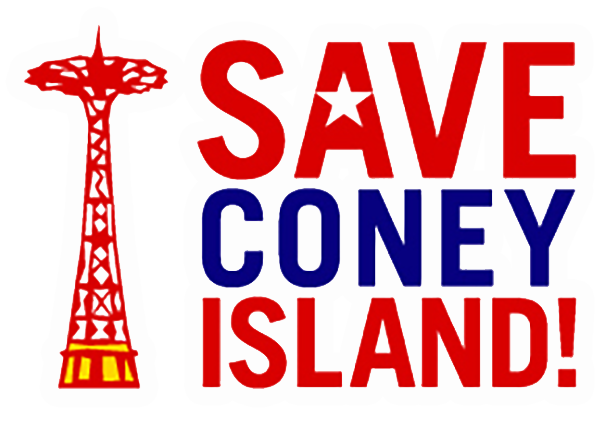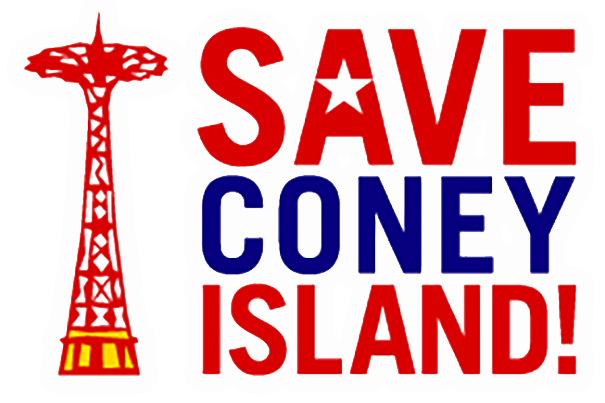What is the Coney Spark Micro Grant?
The Coney Spark Micro Grant is a one-time, $2,000 cash award given to each of three selected applicants who are launching a small business physically located in the 11224 ZIP code (Coney Island). Grants are intended to help cover start-up expenses—licenses, supplies, first inventory, marketing, security deposit, or other immediate needs that will get a storefront, service, or creative pop-up open and serving the neighborhood.
The Goal:
To increase the number and diversity of locally owned small businesses in Coney Island, strengthen the creative and cultural fabric of the boardwalk community, create jobs, and preserve/activate the unique spirit of the neighborhood. This grant supports creatives, makers, food vendors, artists, and small entrepreneurs who will contribute to Coney Island’s vibrant public life.
Our Mission:
Save Coney Island’s mission is to preserve and amplify the creative spirit and public culture of the neighborhood. By seeding new, locally rooted enterprises with modest, flexible capital, the microgrant invests directly in the people and ideas that keep Coney Island lively, inclusive, and economically resilient.
Thank You to the Community who Made this Grant Possible
The Coney Spark Microgrant exists because of the incredible generosity of our community! Every dollar comes from funds raised through our GoFundMe campaign and our recent benefit event. We are so grateful to all the amazing performers and artists who shared their talents, to Rubulad for donating their space, and to every single person who contributed — whether big or small. Thanks to you, we can support local entrepreneurs, keep the creative spirit of Coney Island alive, and show that when our community comes together, dreams really do take flight in Coney Island.
Eligibility
Must meet all of the following:
Applicant (individual or entity) must be 18+ years old.
Business must be physically located at — or have a signed lease/letter of intent for — a commercial or permitted home-based location within ZIP code 11224. (If still searching for a site, applicant must show a realistic plan and timeline to be within 11224 within 90 days of award.)
Business must be a small for-profit enterprise, social enterprise, or sole proprietor (nonprofits may apply only if the activity is a small entrepreneurial program directly related to neighborhood commerce).
Applicants must be the business owner or owner-designate (no anonymous or third-party applications).
The purpose of funds must be for startup/opening or first-6-month operating support.
Applicant must not be in active, unresolved legal judgment that would prevent receiving funds (e.g., sanctions that freeze bank accounts) and must be in compliance with required permits/licenses or present a clear step to obtain them.
Applicant must agree to simple reporting within 6 months and publicity/acknowledgement terms (described below).
If selected, recipient must provide a completed IRS Form W-9 (U.S. persons) or the correct W-8 (for nonresidents) and banking or payout information acceptable to the grant administrator. (Required for tax reporting — see legal section.)
Ineligible:
Businesses outside 11224.
Passive investments (e.g., real estate purchases not used as a business).
Activities that are illegal, require restricted permits that applicant cannot obtain, or businesses whose primary model is gambling, adult entertainment (if local law restricts), or otherwise disallowed by local law.
Applicants who have previously received this same microgrant.
Timeline
Applications open: Monday, October 15, 2025.
Application deadline (close): Monday, November 15, 2025 at 11:59 PM ET.
Administrative check (eligibility verification): Nov 15–Dec 1, 2025.
Review committee scoring: Nov 15–Dec 15, 2025.
Finalist interviews / site checks (if needed): Dec 15–Dec 21, 2025.
Award announcement & press release: December 23, 2025.
Grant payout: within 7 business days of award acceptance and receipt of W-9 and bank details.
Mandatory recipient report due: 6 months after payout (brief one-page update + receipts in supportive documentation).
Application & Review process
Submission: Applicants apply online (or by drop-off) with required materials. The administrator logs timestamp of received applications and issues an automatic acknowledgment.
Administrative eligibility screening: Staff/volunteer verifies basic eligibility items (age, ZIP 11224 location or LOI, required documents). Ineligible applicants are notified with brief reason and, where appropriate, suggestions for other local resources.
Blind scoring by review committee: Applications that pass screening are assigned a reference number; identifying info is redacted from the materials before scoring to reduce bias. A review committee of 3-5 members scores entries against the published rubric. Committee members must sign a conflict-of-interest disclosure and recuse themselves if necessary.
Top finalists: Highest-scoring applicants (e.g., top 6) are invited for a brief 10–15 minute interview or site check. Interviews use a standard set of questions.
Final selection & conflict checks: Committee votes and selects three winners by majority. Any potential conflict discovered triggers recusal and replacement reviewer.
Award notification & acceptance: Winners receive written award letters with terms, timeline for payout, required W-9 and brief reporting form. Winners must accept within 7 days. If a winner declines or fails to provide required documentation within the deadline, the runner-up will be offered the award.
Public announcement: Names and short project descriptions are published with winners’ permission. For transparency, Save Coney Island will publish anonymized scoring summaries (average rubric scores and a short explanation for selection) within 30 days of awards.
Post-award reporting: Recipients submit a short 6-month report with receipts and outcomes. Save Coney Island will publish an aggregated outcomes report (no private financial data) showing how funds were used and neighborhood impact.
Award Terms, use of Funds & Reporting
Use: Grant is unrestricted but recipients must state primary intended uses; Save Coney Island recommends using funds for tangible start-up costs and keeping records/receipts.
Reporting: Recipient submits a brief outcomes report at 6 months (one-page narrative + receipts summary). Failure to submit a report within 30 days of deadline may affect future eligibility for Save Coney Island programs.
Publicity: Recipients agree to allow Save Coney Island to use their business name, short description, and photos for promotion. Recipients may opt out of press if safety/privacy concerns exist — contact staff to arrange alternate recognition.
Repayment: This is not a loan. Funds are not expected to be repaid absent clear evidence of fraud or misuse.
Legal compliance: Recipient is responsible for obtaining all required permits and for compliance with local laws, taxes, and regulations. Save Coney Island is not responsible for permit costs beyond the grant amount.
Financial & Legal
Taxability & information reporting: Cash awards of $600 or more are generally reportable to the IRS as other income (Form 1099-MISC, Box 3 — “Other income — prizes and awards”) for U.S. persons. Because each award here is $2,000, Save Coney Island should collect a completed Form W-9 from each recipient and file Form 1099-MISC for each recipient by the IRS deadline (and provide a copy to the recipient). If a recipient is a nonresident, appropriate W-8 forms apply. (IRS instructions and FAQs detail that prizes and awards not for services are reportable in Box 3 on Form 1099-MISC.).
Grants to individuals by nonprofits: If Save Coney Island is a tax-exempt private foundation or public charity, there are IRS rules around grants to individuals (e.g., objective and nondiscriminatory procedures, expenditure responsibility in some cases). If Save Coney Island is a private foundation, special rules may apply. Consult your organization’s counsel or accountant to confirm that this program fits within exempt purpose rules. The IRS publishes guidance on grants to individuals and organizational expenditure responsibility.
State charity registration & fundraising: If Save Coney Island solicits charitable contributions in New York (e.g., to fund the microgrant), the organization may need to register with the New York State Attorney General’s Charities Bureau and file annual reports (CHAR500). If the entity is not a registered charity (e.g., an informal neighborhood group), different rules may apply. Check the NY AG guidance to confirm whether your fundraising activity triggers registration or reporting obligations.
Tax advice & accounting: Grants may be taxable to recipients (most business grants are taxable). Recipients should be advised in award communications to consult a tax professional and reserve part of the funds for taxes. Save Coney Island should also consult its accountant about reporting, whether to issue 1099s, and how to record the expense on its books. (Investopedia and IRS resources confirm that most grants are taxable to the recipient.)
Collecting tax forms: Practical step — require completed W-9 prior to payout. If applicant refuses to provide W-9, the law generally requires backup withholding or refusing payout — get accounting advice. File 1099-MISC with IRS and provide recipient copy by year-end
Transparency & Governance Commitments
Conflict of interest policy: Committee members must disclose ties to applicants and recuse themselves if necessary. Save Coney Island will publish committee member names and their recusal statements on request.
Public reporting: Within 30 days of awards, Save Coney Island will publish aggregated statistics: number of applicants, demographic summary (opt-in), neighborhood addresses (or blocks), average rubric scores, and a short justification for selections. Recipient names and business descriptions will be published only with consent; aggregated outcomes will be published after 6 months.
Record retention: Save Coney Island will retain application & selection records for at least 3 years for audit purposes and to document program outcomes.
Appeals: There is no appeal of scoring decisions; however, applicants may request feedback. Any questions about eligibility decisions should be submitted in writing within 14 days of notification.

